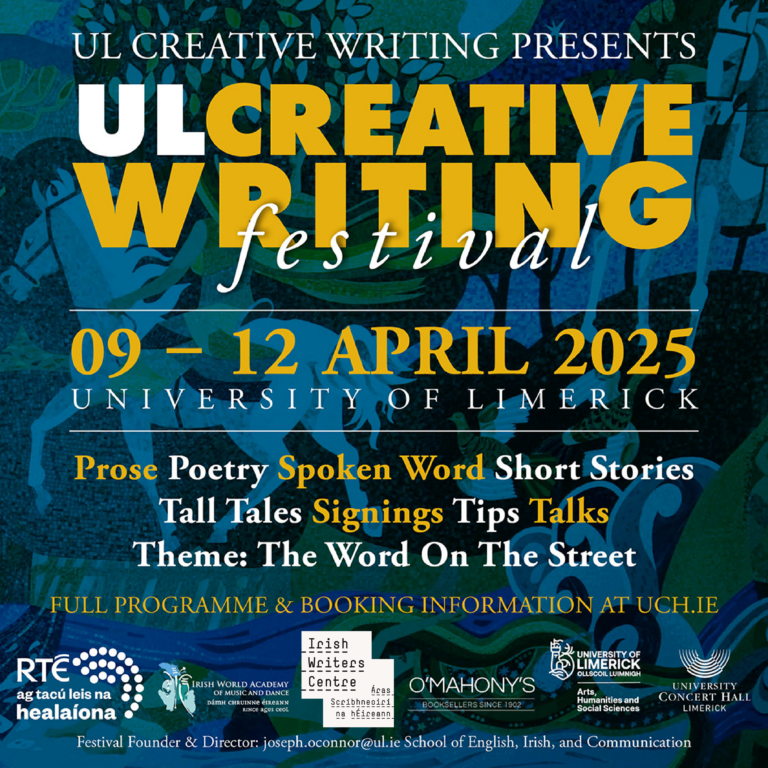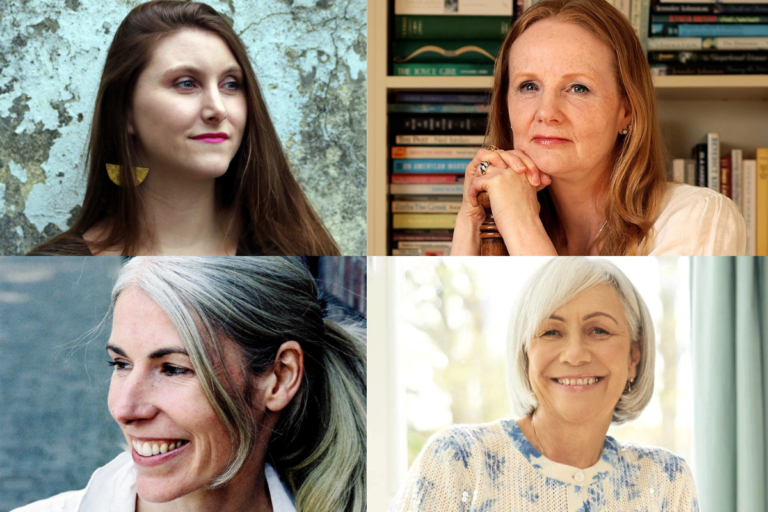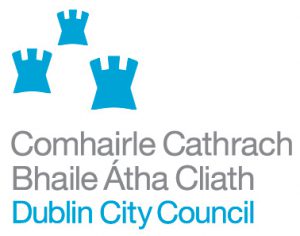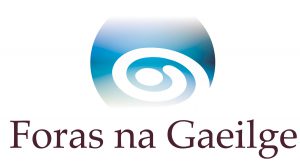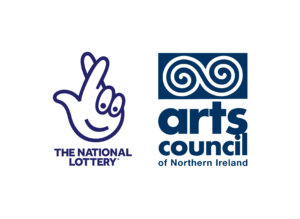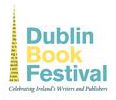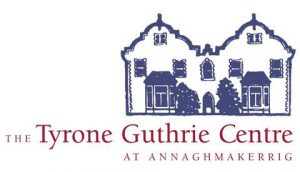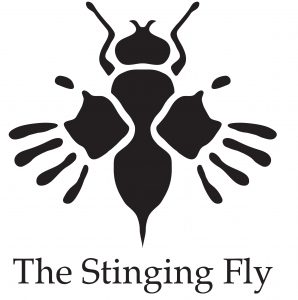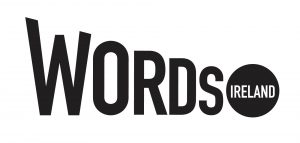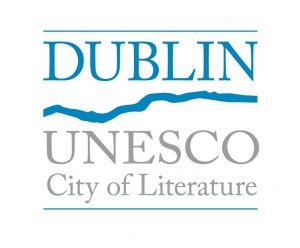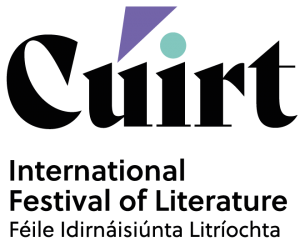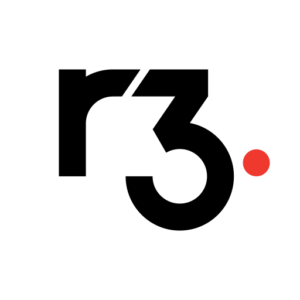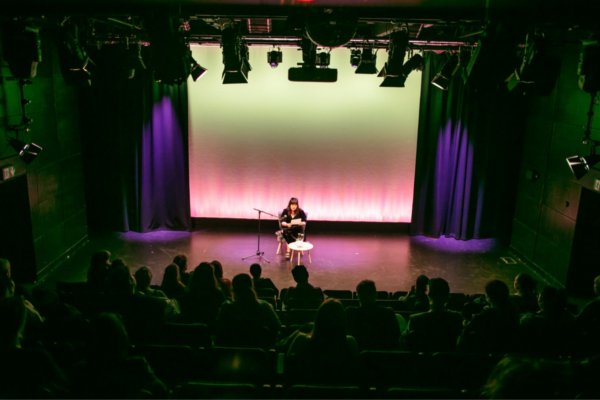
06 February, 2025
The Fragmentary Self: on Form and Identity with Alice Kinsella
‘The Fragmentary Self: On Form and Identity’ sketches Alice Kinsella’s journey from writing poetry to her first book of prose, Milk: On Motherhood and Madness (2023). Alice’s essay draws from her interviews with writers Colm Keegan, William Keohane, and Rúairí Conneely to discuss other approaches to literary form, and how the writer’s experience intersects with class, gender identity and race. Follow Alice Kinsella on Substack here.
This essay was commissioned by the Irish Writers Centre as the inaugural National Mentoring Programme Alumni Lecture and was delivered at Cúirt International Literature Festival in 2024. Listen to the essay on Soundcloud or read the essay below.
The Fragmentary Self: on Form and Identity
I have been tweaking my bio, it begins Alice Kinsella is a poet from. Already I’m getting tripped up twice. From, where am I from? I live, now, in Mayo, where I lived from age five to age eighteen. I was born in Dublin, lived there again when I was an adult, but have returned here to settle down, raise my family. I am split across the country because first my parents, and now me, were driven from the capital by economic circumstance. This is my home, but where I am from, I don’t know.
The word poet snags for me. Loaded with lineage. I feel undeserving, but then, doesn’t every writer? The bio itself, those few lines that we write to define ourselves to the reader, is for the paperback edition of my first prose book, Milk. We, my editor and I, settled on ‘memoir’ to describe Milk. Because it is prose, and autobiographical, so that was the closest fit. Still the inaccuracy of the word makes me recoil. It feels no more a memoir than I feel a poet. Form and definition are troubling for me.
This is supposed to be a talk about craft. About going from writing poetry to a first book of prose. It is about that, but it has less to do with craft than I thought it would at the beginning of the writing process.
While I did not set out to be a poet, I had been long on that track when I wrote Milk. I had just completed an MA in Writing, where I studied poetry and fiction. I didn’t even take the non-fiction module. Personal essays were the last thing on my mind. Yet somewhere in the next year, my voice changed so sharply as to produce an entire book of narrative non-fiction. It arrived abruptly and unintentionally, but I believe it had been percolating for years.
My aim with my writing has been to bring the reader as close to experiencing my own mind as possible. I tried to utilise a form that reflected the interior voice. But for a long time, I wasn’t sure what that voice was.
In 2018, I was lucky to attend a workshop with Eavan Boland at Kilkenny Arts Festival. One of the many things she said that day that stuck with me was to not focus on finding your voice, that your voice is already there, it’s the voice you think in. I am paraphrasing, as I didn’t record it at the time. I felt like an idiot for ever thinking otherwise. I had, to this point, been trying to find my voice.
My problem was that my interior voice was fragmented. It was a voice with working-class roots, a rural upbringing, a middle-class formal education. In some ways, that made me lucky, I could disguise myself in multiple places, as long as those around me didn’t look too hard. I was a cultural chameleon.
Socioeconomic background aside, it’s also a female voice, a voice that abruptly altered following a traumatic birth. After which, my ability to imitate poetry, as that is what I feared I was doing, fell away.
I track my origins as a writer back to the imaginary games I played as a child. Without siblings, I roamed the garden and countryside creating complex narratives to keep myself amused. They were not wholly plot driven, I may spend an entire day focusing on the details of a forest to be ventured through, a meal cooked over a campfire. I luxuriated in the immersion of a fabricated world.
As a teenager I dabbled in poetry. My inspirations were the narrative lyrics of Nick Cave, Leonard Cohen, Belle & Sebastian, and the romantic poetry we read in school. Where I grew up, I was the only child reading poetry, and talking to myself in trees. Literature was mine, I never questioned my knowledge of it, or, more importantly, my right to it.
This changed in university. I received a scholarship, and entirely ignorant of the sociopolitical class system at third level, headed off to Trinity ready to talk about books. This was the place I would write my first novel, perhaps a collection of poems. Instead, my creativity shriveled. There was so little time to write, what with the culture shock, the panic attacks, the reeling horror at learning that my peers had paid actual money to go to secondary school. Literary theory was a language people spoke, and everyone knew how to pronounce Camus. Despite being a fan of good old Bertie Camus, I was fooling nobody.
The base of knowledge necessary for poetry was not something I seemed to possess. I struggled to keep up, but I knew I would never master it, this was not my world.
I started to write poetry again through the Dublin open mic scene. Poems read at the open mics weren’t wooden sonnets full of references to French philosophers. They were punchy, accessible, rhythmic.
No, let me stop myself here.
I am using the language of a poetry reviewer who went to a slam and is trying to prove they are down with the kids. There was spoken word poetry. But there was also confessional poetry. Lyrical poetry. More to the point, there was bad poetry. Weak metaphors and repetitive language, inconsistencies, and sentimentality. This was a place to share, to learn, and to improve. It was a scene that welcomed the beginner and the amateur. I could try out my own terrible work, and be received with enthusiasm.
However, it was far from a homecoming. No one there went to Trinity, and I was frequently mistaken for posh because of my mishmash accent. The skill and speed of the spoken word poem no more suited me than the intricate cadence of what was popular in literary journals at the time. In the mid-2010s, the vibrant spoken word scene in Dublin was dominated by the working-class, urban, male. As a working-class, rural, female, my voice, which I was yet to find, didn’t fit in there either.
The spark of a poem, the gut-punch of a well delivered line, kept me writing. But, for fear of never being taken seriously, I felt a need to do it properly. I had to learn how to be a writer that wrote within the frameworks of history. For fear of being caught out on a poet not read, a form not understood, an absence in my knowledge that would prove I should not be there. I would learn the rules. I would prove the bastards wrong. What bastards? I don’t know.
In these between years, I took a course with the writer Colm Keegan. Colm’s a poet and writer from a working-class Dublin background. In his voice I could hear my own dad’s family, and in his generosity to his students I found the space to explore poetry, short stories, even plays. Learning with Colm, one thing was repeated, if not explicitly then in a sort of feeling in the room: literature is for you, your voice matters.
I asked Colm for his thoughts on identity and form, and he generously gave his time to the discussion.
Colm said:
I never thought about structure just talked onto the page. That’s one of the main directions I give in schools: Your language is beautiful. Your language is poetic. When you put it down on the page it gets domesticated, oppressed, cause you have to sound like a poet. I say to them, don’t sound like a poet, sound like yourself.
When I think about me and where I came from. Ballymun. One of the hardest defined communities in Ireland. Everyone was hellbent on saying they weren’t from there. The people that were from there had to say I’m beyond definition, this place is beyond definition you can’t hem me in, and that reminds me how a real artist can’t be hemmed in. the hemming in is an act of power. You’re in there, we’re out here, that’s the border. That goes back to colonialism. Then culture does the same thing! Unspoken rules that are like secret borders in the way we’re supposed to articulate ourselves.
I’ve been fascinated by form as a poet. I remember when I started off, I was listening to a lot of punk music, and Leonard Cohen at the same time. Listening to the dead Kennedys and reading Bukowski.
There was something anti-rhyme and anti-structure about how I was writing poetry. Something barbarian, refusing to be civilised. And then I went and saw Brendan Kennelly. I remember feeling sort of manipulated and manoeuvred into a place because of the way he rhymed. There was real power, skill, charm and magic in it.
I got all his books out of the library after that. I was unconsciously absorbing form in that way.
There is an inhibited power to form, to structure, and getting educated into those structures. But it’s a bit like learning how to play football or guitar, thinking about it doesn’t feel right when you’re doing it. Eventually all the means to do it are inside you, are embodied and when the time comes to do it you just do it and you’re in that flow state. All the positive sides of education, all that mimicking, you absorb it, and subconsciously you just use them. That’s the ideal.
My relationship with playwriting, and story, has always been one of structure. What’s the form for this story? [with For Saoirse] Seven towers of Ballymun, Seven floors in a Ballymun complex, I’m going to write a seven step story. I thought of each floor, each scene, as a line of a poem as well. There’s a cumulative effect of the sections, we’re descending. A poem works the same way, cinema works the same way. We’re journeying, there’s an arrival, there’s a discovery.
Form is kind of like an editor. There’s a joy in parameters that create opportunities. Form is an empowering tool. The thing that can go missing in all these parameters around expression is the spirit. Poetry should be a spiritual experience.
I used this image working with indigenous women in Australia. I showed them a holy well, a Brigit’s well, and how they get coopted by the church. they’re there thousands of years, then the church comes along, puts a gate around it, that’s ours now, you can’t come in. There’s a well of creativity inside of us, and sometimes education can do that to that place inside us. You want to say something? you gotta say it like this. it’s structures around the wells. But paradoxically, those structures protect and enhance the well. You’ve got to use the colonial means of expression to express yourself.
After speaking with Colm, I thought about that idea of self-expression. For me, it is the self that I am trying to express that I have difficulty with. While I studied poetry, mimicked dead writers, and even published work, I was aware of how I came across as a poet. What were my poems saying about me? I wrote about grief: sentimental. I wrote about sex: slut. I swore: common. I wrote villanelles: imposter. I wrote free verse: stupid. That was the one I was most afraid of. It is important to note that none of this was said to me, but the fear that these were the coded messages of my work was embedded in my mind. There were parameters at play in my work, and they were not formal.
When I talk about my fragmented inner voice I mention my class and gender, but I don’t mention my race. My voice is a white voice, and that makes it one of privilege. I haven’t needed to address my race in my work, or indeed, my life. It is a trait of the times, perhaps, that we identify the ways we have been oppressed while ignoring the ways in which we have been complicit in oppression.
I met Rúairí Conneely through the open mic scene in Dublin and we’ve been close friends since. He writes poetry, plays, and produces live events. In 2023 he was part of Black Jam, a performance night of African and Irish punk storytelling and music, which won the Judges’ choice award at Dublin Fringe Festival. He’s mixed race and grew up in London. He kindly gave his time and experience to discuss form and identity with me.
Rúairí said:
The words we use to characterise ourselves racially are inaccurate and they create problems. They smush together people from different ethnicities and cultures. People get hung up on the language around it.
I’m from London, which is its own category. Ireland was an ethnic monoculture for so long, that the conversation is different. How has racial or ethnic identity affected my use of form? Socialising in the part of London I grew up had a performative aspect. Cussing matches, stuff like that. But there was a point you were just expected to commit to rap, which I wasn’t so I kind of drifted off. Coming to Ireland and seeing the spoken word scene. Prose and comics were my first love. Poetry came from exposure. Realising it was a way to feed the extrovert in me.
When I look at my writing, I’m pretty interested in liminality, grey areas, the excluded middle. I have a bit of a fixed station about the way people characterise things neatly and then miss what is right in front of them. That reflects my own conditioning, my own identity a great deal. All these in between spaces. I don’t look or sound like where I’m from, but if you know me, I’m frustratingly Irish.
I’ve most consistently worked on the quality of my writing, then thought how I get it out there. with performance, you just show up, you don’t have to explain yourself on paper. My main creative output is the performance side of things. I feel more welcome in the performance space because of the idiosyncrasies in my identity. There’s a well-meaning tokenism. With publication, you’re almost asked to make more of a point about your ethnicity, and I’m like ‘no! I want to write about aliens!’
Both spaces want you to talk about it, whether you want to or not. I do want to publish, but with performing, there’s living energy in the room. I remember the physical sensation carrying up my spine the first time I performed a poem I was proud of.
If you feel othered by default, being an artist, writer performer is a great way to define the space for yourself. If you’re the only brown person in the room, taking control of the social space through performance it’s a great way to maintain the power balance in the social relationship. Being othered due to ethnicity, it’s rarely hostility, it’s awkwardness, it’s people not knowing what to say. Artists are permitted to be eccentric, to be different, to have wiggle room. You can be nourished in a performance space that you might not get otherwise, because you’re tokenised.
The problem with race discourse is it’s this force that comes in from outside and defines you.
I was invited by Osaro Azams to write an original piece for Black Jam at the Dublin Fringe Festival. What was cool is that it was an intensely eclectic night. When I first got involved in poetry and spoken word, I was with a small press who did traditional stuff. It was straight laced. I was the youngest person in the room. But with something like Black Jam, it was the latest fruition of a dream. It’s close to the zeitgeist, the cultural energy is molten. It speaks well of Ireland that these events have started to happen.
You can be othered and accepted in a social performance space. Everybody respects eloquence. That said, too many of these self-defining people in the same place, it alarms people. It creates a kind of nervousness. That’s a great feeling as a performer. It’s a great antidote for alienation. Something like Black Jam embraces the extreme of alienation.
With performance. It’s harder to ignore. You can ignore a book. There’s also a singular relationship with publication in Ireland. The sense of gatekeeping is very intense in Ireland. If you’re reading something distasteful you put the book down. But if it’s a performance [the performer] can be heard more, you can be hit harder.
Where Rúairí enjoys feedback between performer and audience, I recoil. He describes poetry as versatile, yet I had found it suffocating. I suspect our different approaches to fluidity have more to do with personality than gender or racial identity, but at the same time it makes me reflect on our childhoods, his in London, a melting pot of competitive kids, mine in Mayo, talking to trees by myself.
It does make me consider the freedom to be found in performance. The impermanence means that while you may not have to stand over what you’ve written until your death, you could be approached in the moment and slapped across the face. It is a more immediate form of communication.
Rúairí texted me after the interview to say:
In a context where you are anomalous or unusual because of your identity, Art becomes a tool of self-definition before the group.
I never chose poetry, per se, I had wanted to write stories. Poetry had distracted me, with its precision and immediacy. Like a beautiful charm. I forgot that I had never been interested in the language of writing. I had written as a child and young person because I enjoyed play, and when my writing matured, it was the empathy aspect that drew me. I, a relatively isolated child, craved understanding of other people. My empathy when young seemed to be limitless, especially in dealings with the non-human, and it was only through fiction that I felt that echoed back at me. Poetry, prose, whatever form the words take, were just a vehicle for thought and feeling, for communication.
Colm had said to me, I’m a colonised person, but if I look at my lineage, I’m the coloniser as well.
And this, I think, is where I have been falling down. The definitions of identity that I have struggled with, the feeling that I do not belong to a particular group, and that my voice does not make sense in any particular form. It comes, I suspect, from a misunderstanding of those categories. That they are rigid, and we are what we are told we are. But, not unlike the rigidity of form, the rigidity of identity isn’t set.
I transitioned from writing poetry to prose during a period of transition of my own. Pregnancy and the postpartum period. The birth was traumatic, and language altered quickly for me, which isn’t uncommon in PTSD.
This was a period of transformation of my personal politics. I joke that I was radicalised by pregnancy, some strange awakening of the structural inequalities than make life unnecessarily difficult for pregnant women, mothers, people with disabilities, any other.
When I started to write again after the birth, something was different. The sentences came quickly and with certainty. The form I wrote Milk in was political, motivated from intellectual decisions following birth. Or so I thought.
In fact, the first fragment that would eventually make its way into Milk was written when I was approximately five days pregnant. I had just gotten a puppy, and was experiencing pangs of inadequacy and panic. I started to write, expecting a poem, and a short piece of prose, no more than 800 words, arrived. It came so fluidly, so entirely in a voice I recognised as my own, that I didn’t know what to make of it. I saved it to a new folder tentatively titled ‘nonfiction?’ and promptly forgot all about it. Two years later, when I was compiling my manuscript from the hundreds of fragments I’d written since, I found it, checked the dates, and realised that Milk was conceived much more quickly after my son than I had thought.
Had pregnancy hormones permanently changed my voice?
I am not a scientist, but I do believe in the scientific method. Unfortunately, short of getting pregnant again to try to duplicate the effect, I can only theorise as to the effect of hormones on my inner voice. How that voice changed, not through political awakening, but through something more physical.
William Keohane is a writer whose work I’ve followed for years. I enjoyed his poetry, though we had never met. Most recently, I read his pamphlet Son. The publisher describes as:
Questions of identity and self realisation are not easily or straight-forwardly accommodated by one literary form. Keohane’s response to this has been to write something formally myriad, hybridised and resistant to easy categorization.
When I was researching this talk, I was struck by the similarities in change of form between us. Could the transforming bodies of a trans writer and a pregnant/postpartum writer be compared? Was I projecting, clutching at straws, mad? I reached out to him to discuss, and he kindly agreed.
William said:
I describe my writing as trans-genre, which a lot of trans writing seems to be. You can’t capture it within one form. It tends to blur the boundaries of form. You mentioned class and access. Trans writers experience the difficulty of access around patriarchal structures about what is ‘right’ or ‘correct’ poetry.
Before coming out I wrote a lot of poetry, which I now consider more like compressed, short writing. I imagine this is because I had a stifled voice that couldn’t come out yet.
After coming out, I started writing essays. Most recently a straightforward essay about top surgery, which is so different from my poem, Top Surgery.
Son I would describe as a hybrid trans-genre text. It’s an essay, but as it develops, parts of it become like poetry. Overall the language is very sparse. I tried to be attentive to the language, deliberate about the words chosen, as a reflection on my experience as a trans writer. I feel the need to be very careful. At times, as a trans writer, it feels as if everything you say can be seen as the singular voice of the so-called trans experience, when you’re only speaking for yourself, and that you have to be careful in case what you say incites fear or hostility.
You talked about taking the working-class writer and putting them in a middle-class shape. It’s similar, in ways, taking a trans writer and putting them in a cis shape—I don’t quite like using those words, but they’re the ones I have access to. Available language is a problem, in that sense. Literature can and should be meant for various different audiences. Often trans writing isn’t meant for a cis audience. An inherent aspect of being trans is breaking from categories and rules.
Boxing Day, a poetry show I’ve been touring, utilises the square box shape to write poems. They look kind of like sonnets, but they’re not. It’s my way of breaking from established poetic form, and taking another rigid form like a box, and putting my poetry into it.
You want people to come away with a sense of enjoyment, but you also want to create a space of shared reality. That’s blurring boundaries of form too. I like to think also about the ‘form’ in performance.
I guess I’m wondering who I am writing for? Prose feels more accessible. Especially when using direct clear language. When I’ve studied poetry, there was an aspect that felt intentionally confusing, like it was trying to deny access. It’s something you have to chip away at, to work towards. There’s an enjoyment in that, but there’s also an urgency of where we’re at now with awareness of trans issues so maybe poetry’s not the answer.
Poetry is like building a monument. It’s made to last. But what happens if your survival in the present moment is under threat? You’re not going to be writing for a future audience. You’re going to be performing, performing as political performance, to be acknowledged as your life having value.
Poetry should be something we spend time with, something we think over what we want to say because we want it to last. But sometimes there’s also an urgency to get something out there. We can hold these conflicting ideas in mind. Form is a construction. A sonnet doesn’t exist naturally in the world. We can undo the structures, we can unbuild and rebuild structures. Gender, patriarchy, language, storytelling.
I tell Will about my suspicion on the effect of hormones on my literary voice and ask if he experienced something similar.
I don’t think so. With physical change, and feeling more comfortable in my body, the body became less of a distraction, and I was able to have more clarity of thought in my writing because I was less distressed. There’s a biological element, but you have to take bio, psycho, social and put them all together.
Without realising, I had been hoping for a confirmation of my own suspicions, that my internal voice changed because my external body did. But it’s never going to be that simple. But what Will says about distraction, clarity of thought, rings true.
Was there something freeing in the urgency of pregnancy and birth that lead me out of poetry and towards prose, outside of the constraints of form?
In those early days of pregnancy I was surging with hormones that I thought at the time were PMS. The puppy was causing feelings of panic, regret, and small puncture wounds on my shins. That first fragment was not written with any reader in mind. There was change going on around and within me, and I needed to put the overflow on the page.
When I tried to write again in the days and months after the birth, poetry, its beauty and restraint, seemed stupid and full of lies. It all seemed so irrelevant. Form, fitting words into specific shapes to show off. How hadn’t I seen it before?
I had become so concerned with concealing my ignorance in how I spoke, that I’d forgotten what I was trying to say. Restraint as a literary device was something for someone who had fewer restrictions in their life. I didn’t have the time to wonder about line breaks, I felt like I was dying and there were things I needed to say.
When I tell Colm about my pregnancy form shift he says:
Your subconscious started to change. You knew what was going on a deep level. There’s a dark collective subconscious underneath all of us. Artists are in touch with that. An experienced writer can express themselves quicker, there’s something almost spooky about that voice. That’s the voice. It’s a voice that’s underneath. The paradox is that it wouldn’t be able to articulate itself without education.
And I have been educated. Milk was written in a frenzy, over months rather than years, but it was written a year after I had finished my masters, where I had spent a year writing and feeling blessedly ignorant.
After publishing a book, one of the curious things that happens is you get asked to share your wisdom with other writers. I visited University of Galway’s MA in Writing last year. I shared a more chaotic version of what’s in this talk. Formal writing as something middle class. The head of the class, Mike McCormack challenged this idea, ‘Unless you were shoved up a chimney at the age of four with your own brush you will not out-
working-class me – and I love form.’
For me, form had become a restraint, a sign of my ignorance. But not all restraint is bad. Mike called form scaffolding, something to build the work around, that isn’t seen once the work is complete. I agreed, contradicting myself as I often do, but concluded that the scaffolding can’t be that of someone else. The conversation moved on, but I was left pondering. Had I inadvertently been championing the ideas I opposed? That form, literature itself, belongs only to the middle classes, to a certain kind of person, of writer? I believed in restraint as a creative tool, I loved so many aspects of craft. Maybe all my inner turmoil just came down to not liking being told what to do.
What would literature look like if the forms we wrote in were not dictated by the systems we are trying to write our way into? What does writing look like when our identity infuses with the form?
Speaking with Colm and Will, I noticed a comparison. Colm’s seven story play, and Will’s box shaped poems are structured, formal, constrained. Yet no one could accuse either writer of being anything but original. They had moulded form to enhance their voice, to manoeuvre their audiences, and speak within a form that suited them.
I had been trying to find a form I belonged in. I had been too conscious of the inconsistencies in how I spoke, my fragmented and conflicting identity, but by unshackling myself from poetry as a form I allowed my voice to come through as it hadn’t before. The work that followed: my first book of prose Milk, is fragmentary. There are pages that at first glance could be poetry, others that might be essays, scenes and a narrative arc that wouldn’t be out of place in a novel. Yet it is formal in its own way, playing with time, adhering to the internal rules I set out for it. While it may not be poetry, my years with poetry are all over it.
If the scaffolding you are working with is that of a group or voice you don’t belong to, that can be stifling, but challenging that sense of belonging, of ownership, was necessary for me to discover a form I could write in. That’s what I needed as a writer. It is, what I have come to suspect, what each writer must create for themselves with the available tools: a scaffolding of one’s own.

